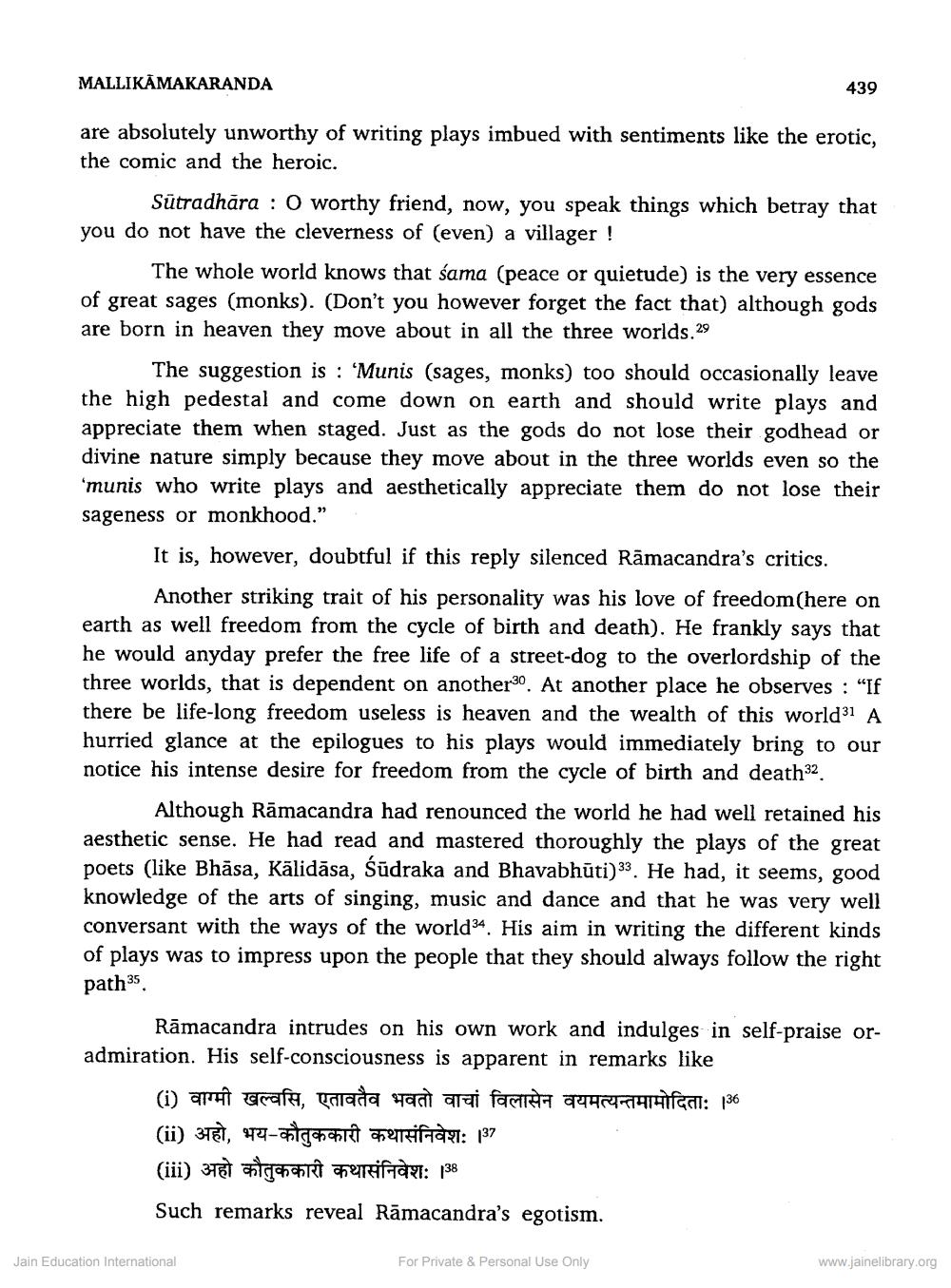________________ MALLIKAMAKARANDA 439 are absolutely unworthy of writing plays imbued with sentiments like the erotic, the comic and the heroic. Sutradhara : 0 worthy friend, now, you speak things which betray that you do not have the cleverness of (even) a villager! The whole world knows that sama (peace or quietude) is the very essence of great sages (monks). (Don't you however forget the fact that) although gods are born in heaven they move about in all the three worlds.29 The suggestion is : 'Munis (sages, monks) too should occasionally leave the high pedestal and come down on earth and should write plays and appreciate them when staged. Just as the gods do not lose their godhead or divine nature simply because they move about in the three worlds even so the 'munis who write plays and aesthetically appreciate them do not lose their sageness or monkhood." It is, however, doubtful if this reply silenced Ramacandra's critics. Another striking trait of his personality was his love of freedom(here on earth as well freedom from the cycle of birth and death). He frankly says that he would anyday prefer the free life of a street-dog to the overlordship of the three worlds, that is dependent on another30. At another place he observes : "If there be life-long freedom useless is heaven and the wealth of this world31 A hurried glance at the epilogues to his plays would immediately bring to our notice his intense desire for freedom from the cycle of birth and death32 Although Ramacandra had renounced the world he had well retained his aesthetic sense. He had read and mastered thoroughly the plays of the great poets (like Bhasa, Kalidasa, Sudraka and Bhavabhuti)33. He had, it seems, good knowledge of the arts of singing, music and dance and that he was very well conversant with the ways of the world 34. His aim in writing the different kinds of plays was to impress upon the people that they should always follow the right path35 Ramacandra intrudes on his own work and indulges in self-praise oradmiration. His self-consciousness is apparent in remarks like (i) वाग्मी खल्वसि, एतावतैव भवतो वाचां विलासेन वयमत्यन्तमामोदिता: 136 (ii) 3T), 4-antalah orani Der fast: 137 (iii) et leshoirt femifidat: 138 Such remarks reveal Ramacandra's egotism. Jain Education International For Private & Personal Use Only www.jainelibrary.org




